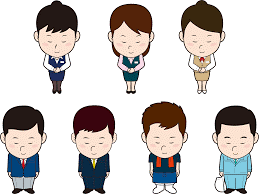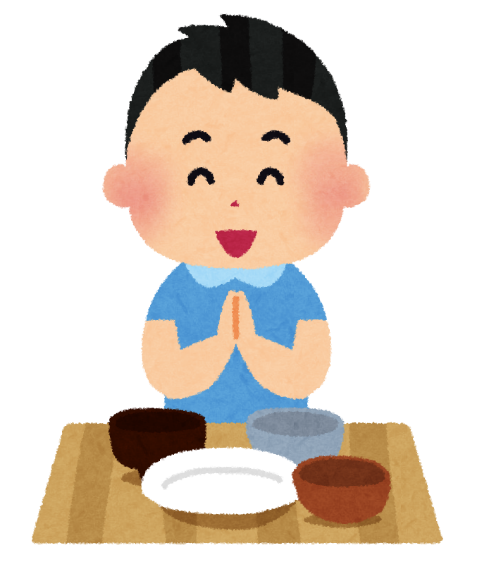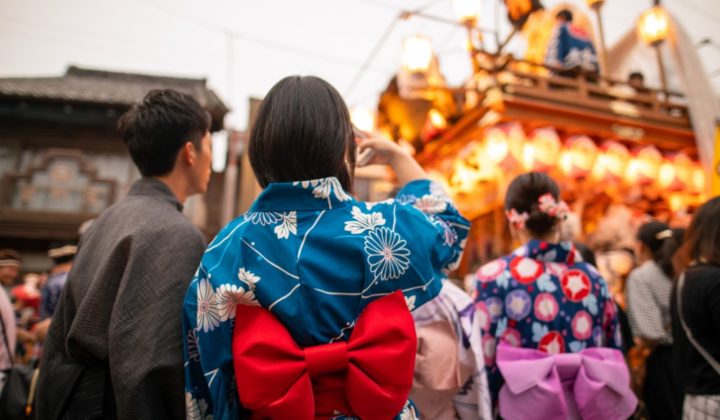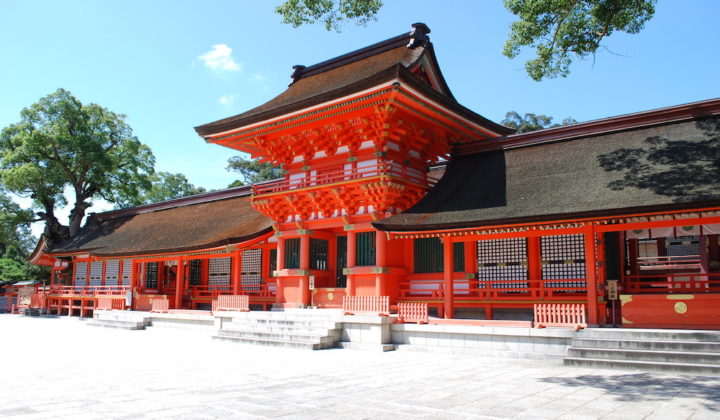This post is also available in:

Welcome to Japan! When you live or study in Japan, you might be surprised by certain Japanese customs. There are a number of differences between customs in Japan and in your home country. That said, if you don’t know Japanese customs, you may be not only surprised by it but also taken off guard. The following are a few major customs that you should know when you come to Japan.
<1> “Itadakimasu” / ”Gochisousama”
Generally, Japanese people say “Itadakimasu” with folded hands before they eat food. Furthermore, they say “Gochisousama” with folded their hands after they eat food. I think this is a specific Japanese culture and some foreigners feel this is a little bit strange. So, why do Japanese people take such steps before and after having food? The reason for this is nothing but an expression of giving thanks. Japanese people give thanks for the cooking and the ingredients because these foods that we eat every day are made possible by the sacrifice of time and effort from the chef, as well as sacrifices made by the animals or plants that went into our meal. We have to express our grateful feelings for their life.
<2> Bowing
We have another custom for expressing grateful feelings to someone. That is, bowing. This is very common and you have certainly witnessed it firsthand. Many Japanese often bow to someone, and you can see the bowing everywhere in Japan. For example, we bow when we exchange business cards with each other at first meeting. You can see the bows of store staff in front of customers at a shopping center. These bows are expressions of gratitude to someone. Furthermore, bowing has different meanings as well. It means that bowing is used when you wish to apologize to someone. In this way, you can see bowing in various situations in Japan.
<3> Making a Quick Response (Aizuchi)
Your country also may have this custom, but I think that there are few differences in nuance in Japan. Making a quick response is called “Aizuchi” in Japanese. In English you might say “Uh-huh”, “I see”, “So do I”, etc. during a conversation. Some studies show that Japanese listeners interject with “Aizuchi” two to three times as often as English speakers do. Japanese frequently make use of “Aizuchi” during their conversation. Furthermore, Japanese Aizuchi is not only spoken phrases like “Uh-huh” and “I see”, but also expressions like nodding of the head. In Japan, “Aizuchi” expresses agreement and shows that you are listening to someone carefully.
<4> Taking the Escalator
You can take the escalator at many places in Japan such as shopping centers, office buildings, and train stations. You are usually allowed to walk up/down the escalator, and we usually keep one side open for people who are in hurry. In eastern areas like Tokyo, the side open for walkers is generally on the right, but it switches to the left in the Kansai Region, for instance. Japanese transportation is highly developed and many people use the train to commute to their office in Tokyo. The train station is heavily packed during rush hour every day. Please take care to adhere to these rules especially at the train station.
<5> Separation of Trash
When you take out the trash in Japan, there are strict rules. These rules depend on the region or local government. In general, you need to separate your trash into burnable, nonburnable and recyclable items. Please note that the day of the week on which you can take out the trash is predetermined by your local government. You should check the schedule before taking out the trash!
Respecting the above-mentioned customs will translate to expressions of respect and gratitude toward others in society, and many Japanese customs, in fact, originate in the desire to show respect and gratitude for others. It is important for a foreigner to understand these respectful practices while in Japan. These customs are just a couple examples among many. You may encounter some trouble and be surprised by how many seemingly unnecessary Japanese customs there are when you live in Japan. Nevertheless, I hope you enjoy your stay in Japan with the understanding of this culture. Have a nice stay in Japan and enjoy your time!!
Thomas











